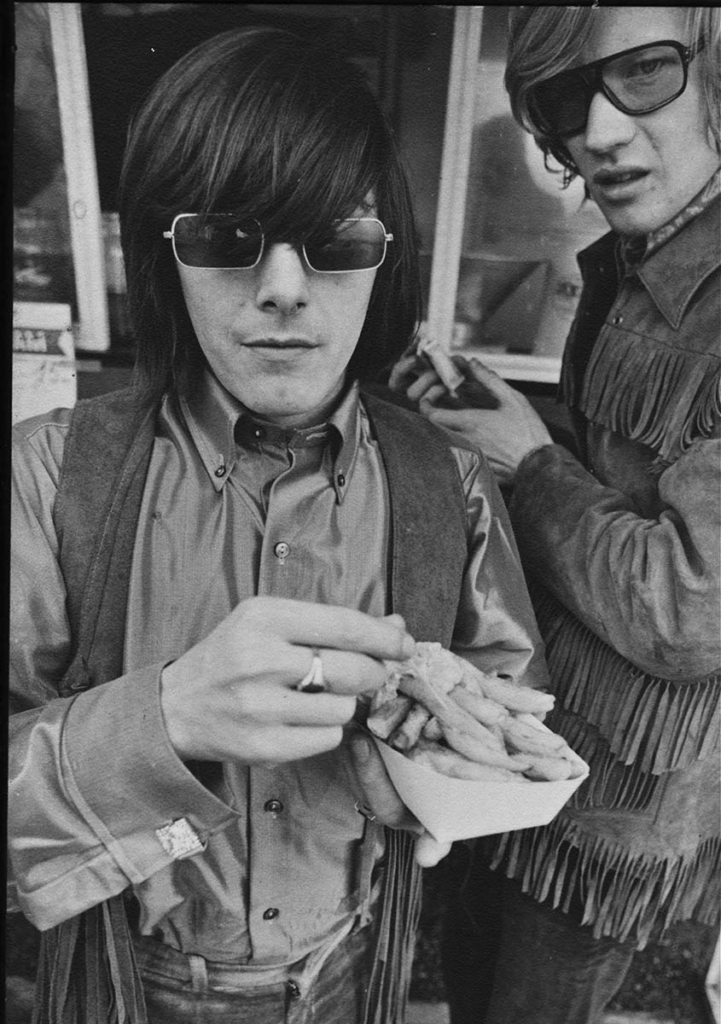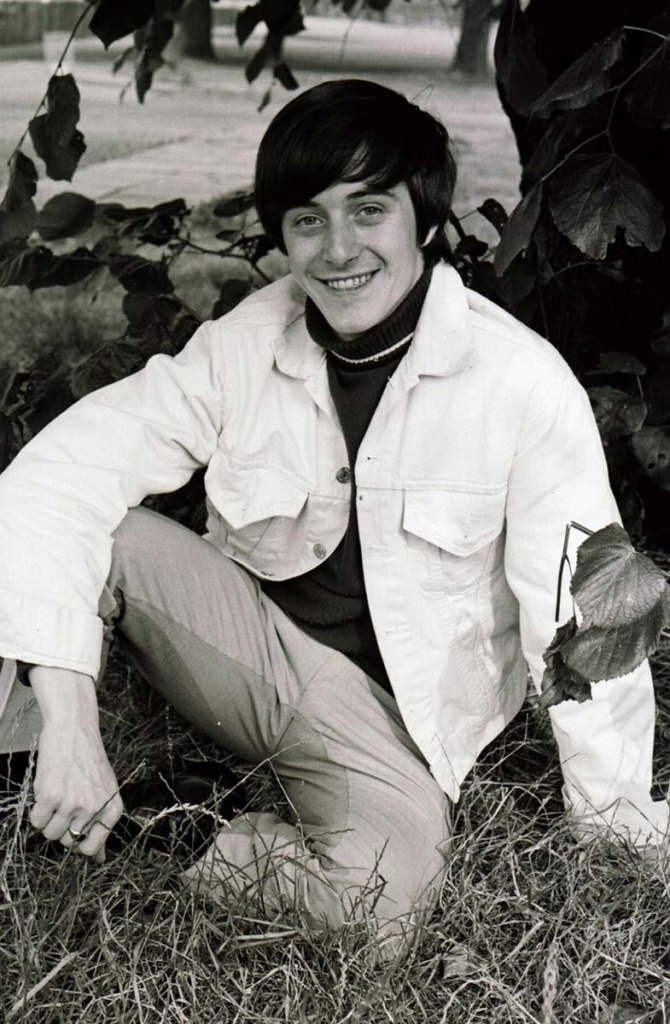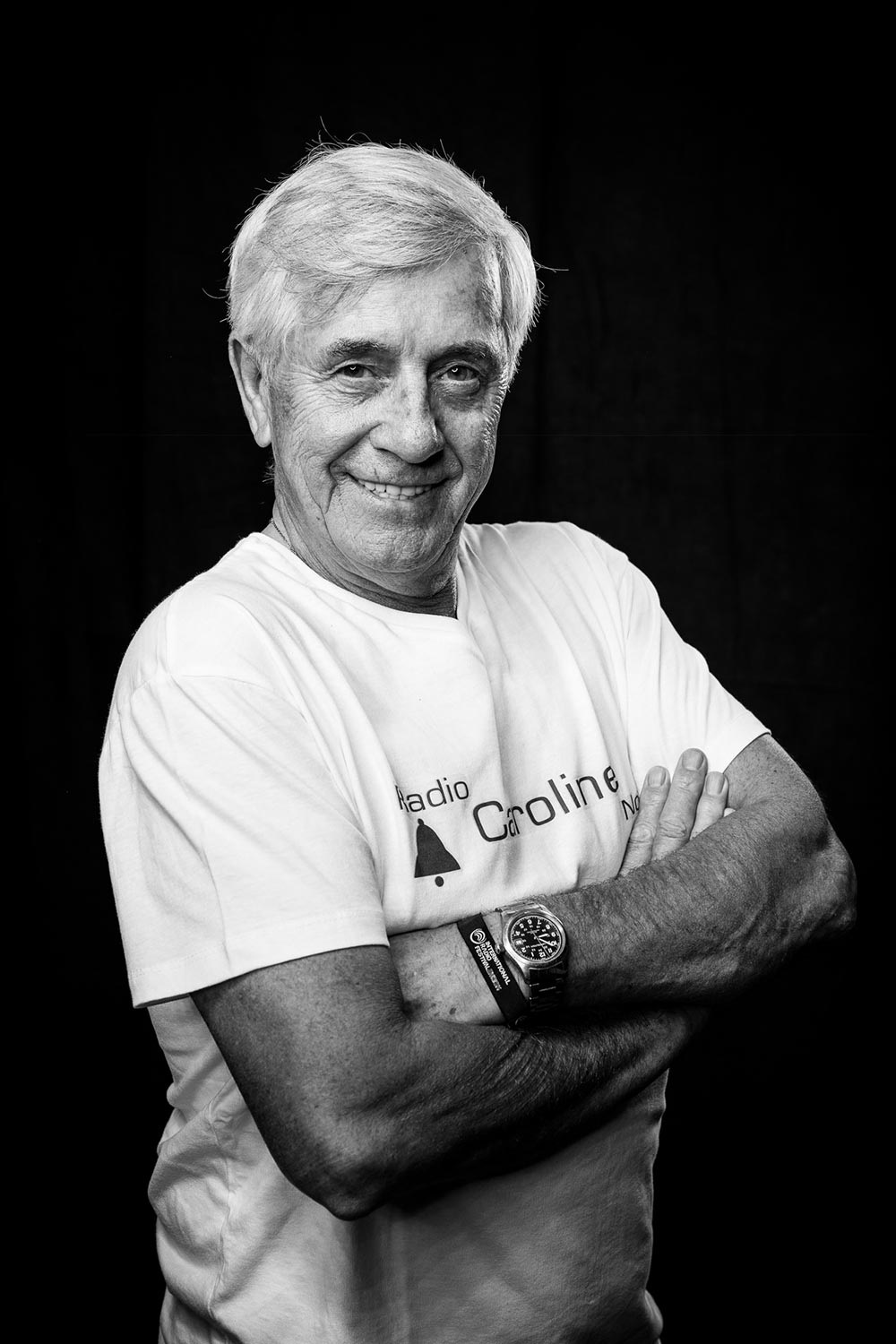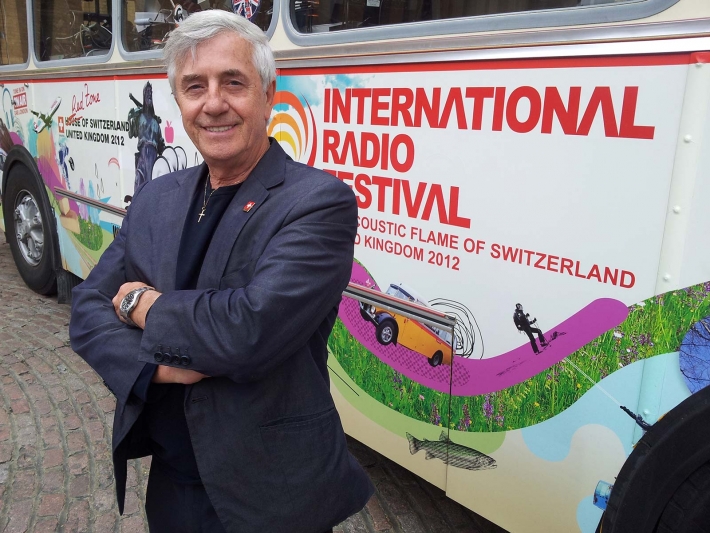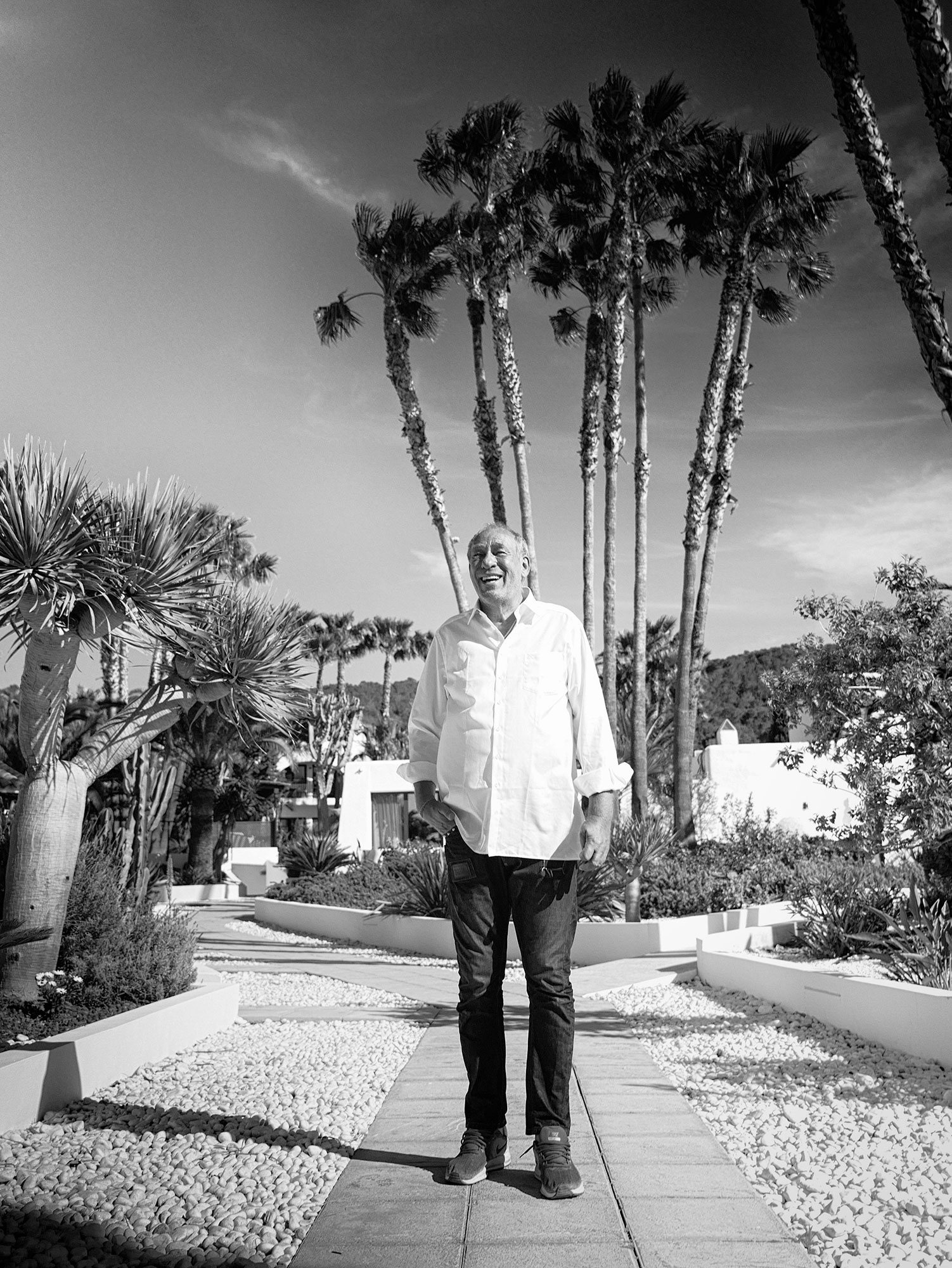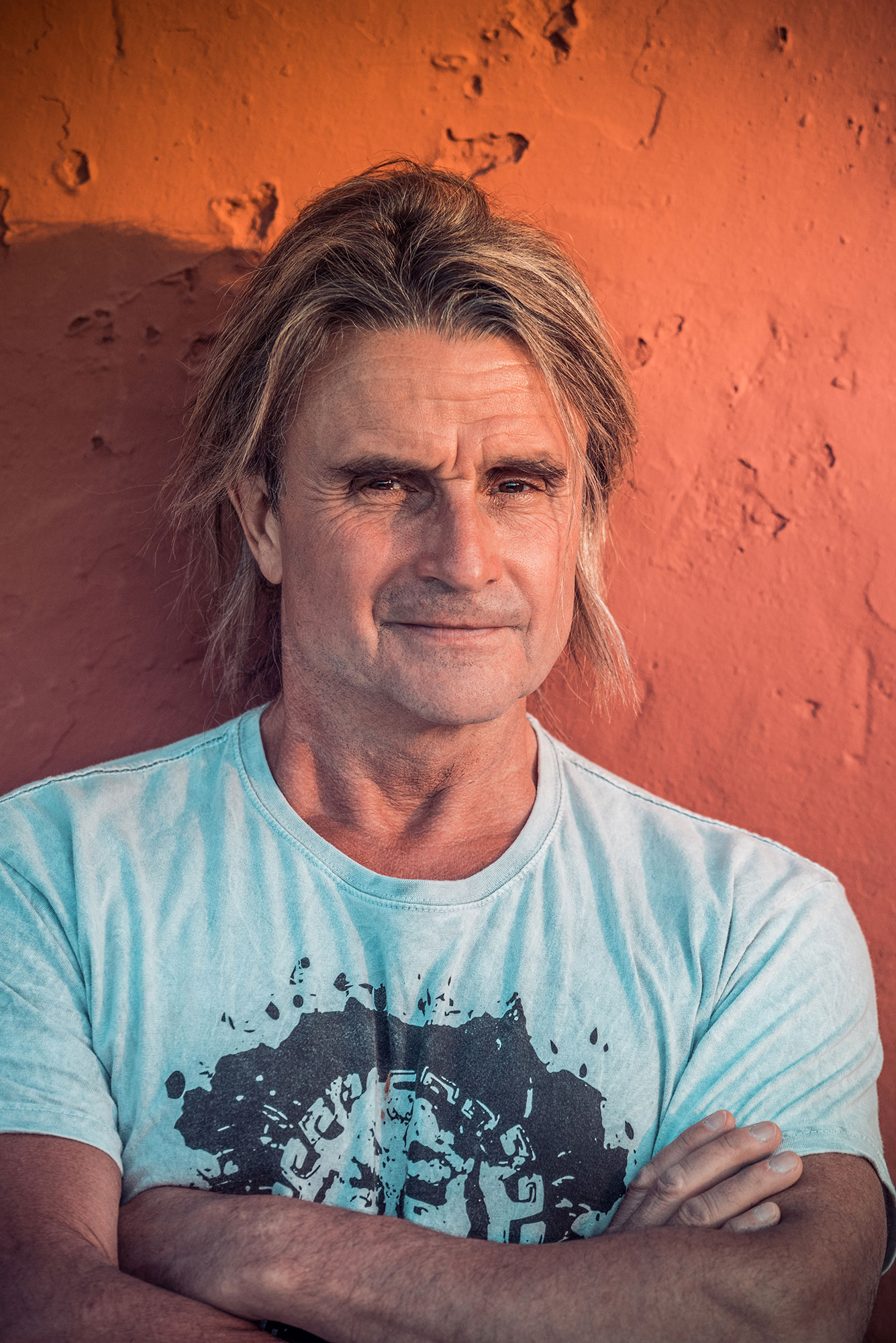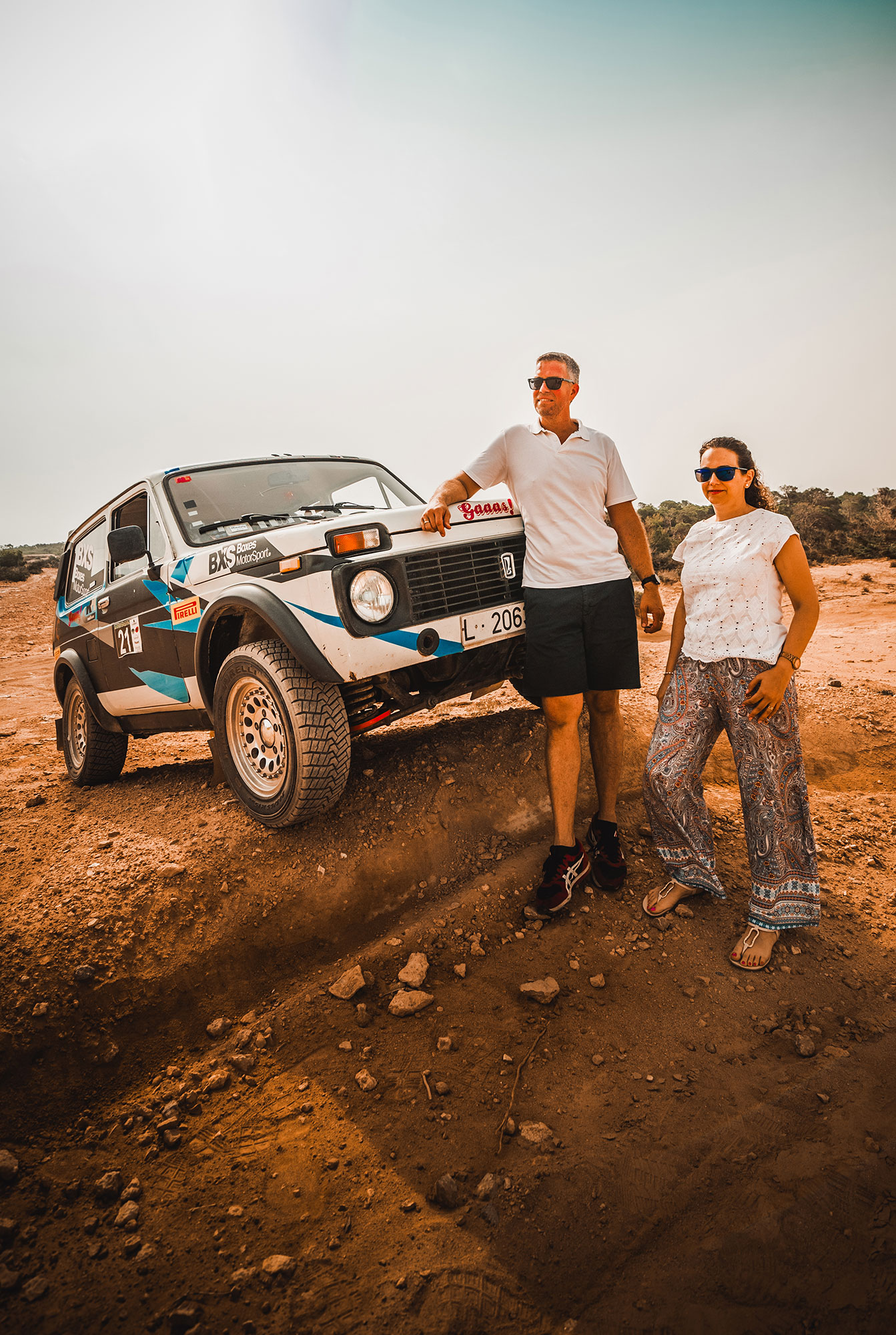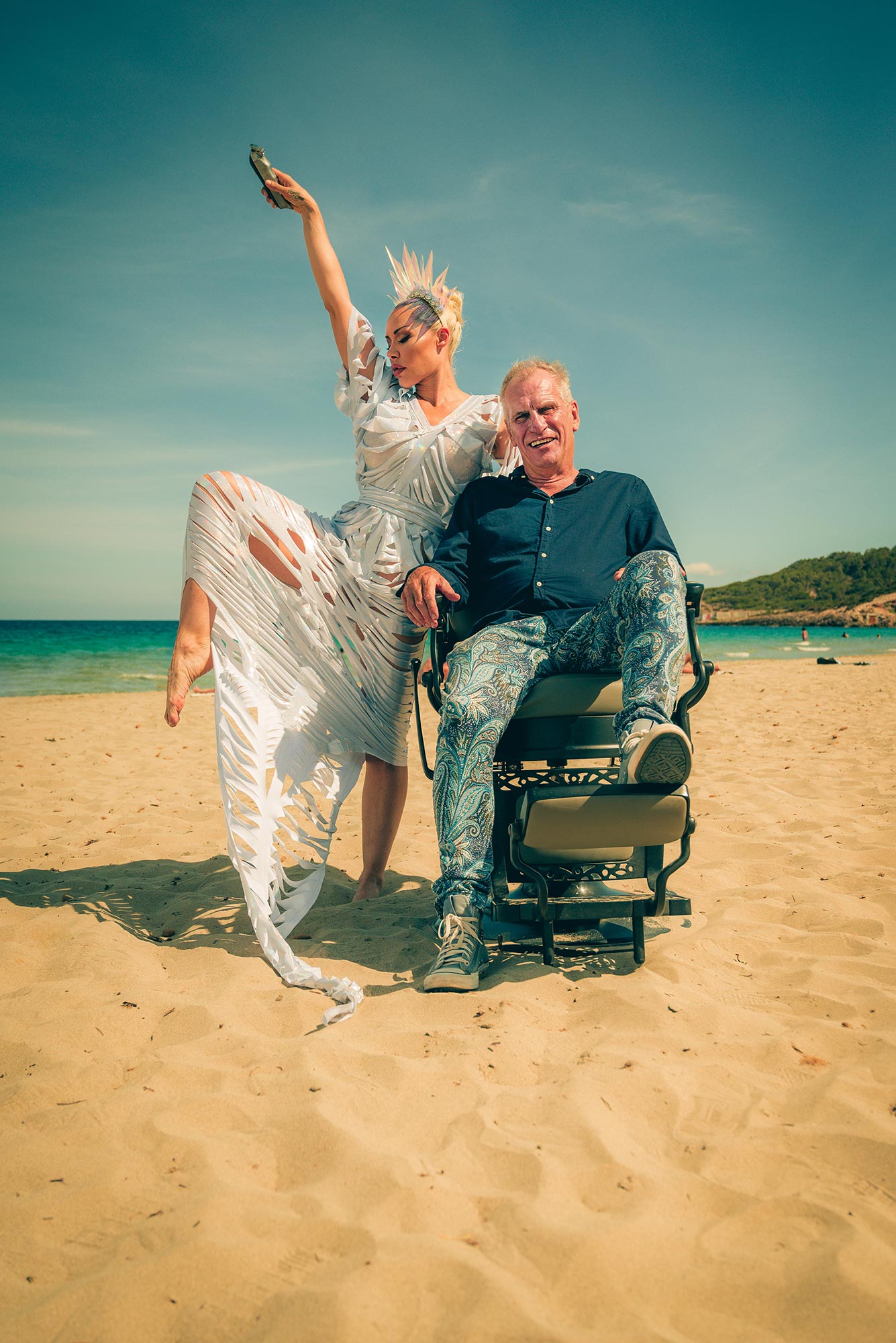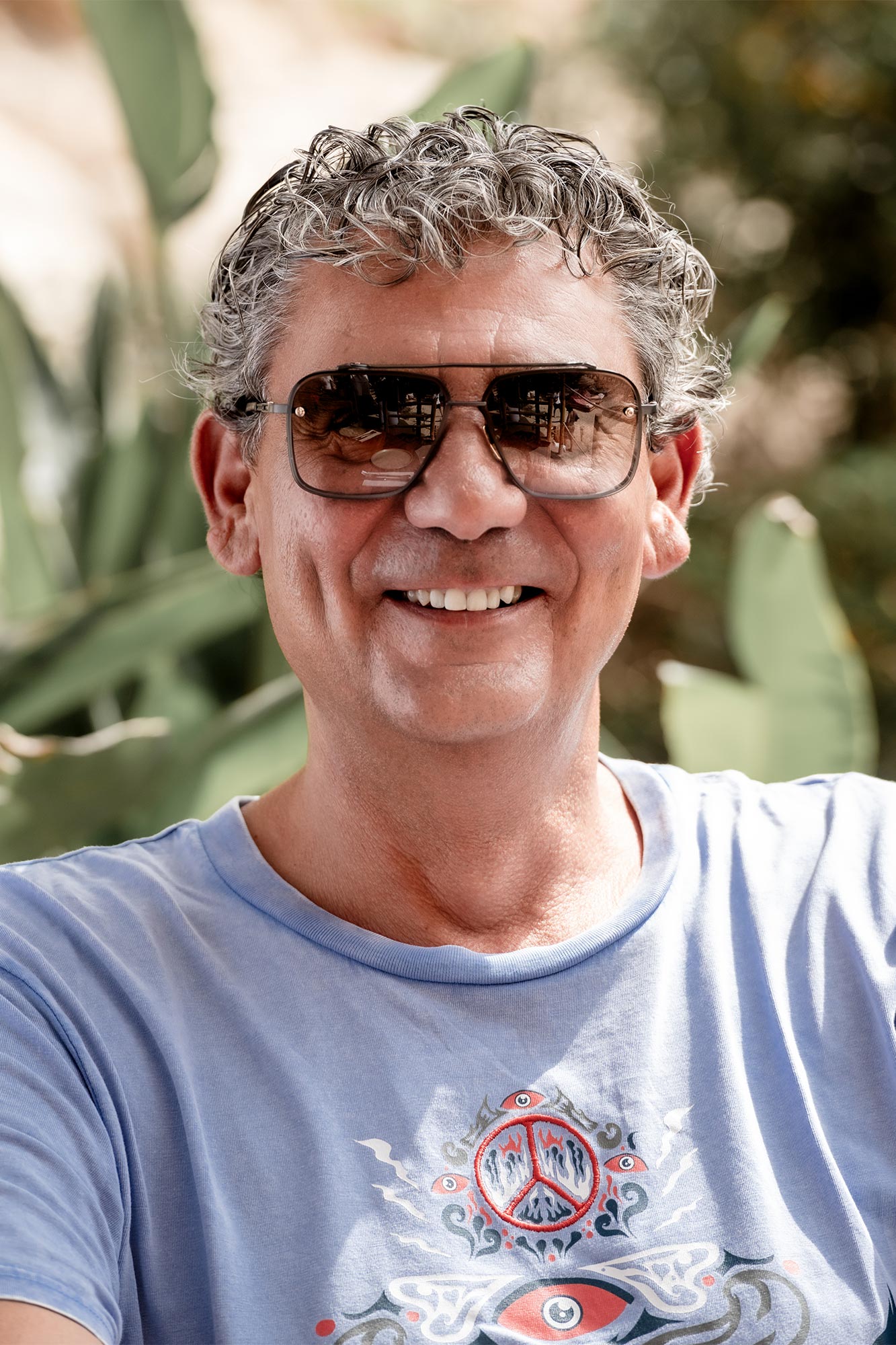On top of it all he influenced the world of DJs and Club Culture and played a key role in the history of Dance Music. Please meet the legend: Tony Prince.
Tony, the indians are saying, that you don’t know a man until you walked in his shoes. Now what kind of man was Ringo Starr back in 1959?
He was a cool guy. Dry wit, typical Liverpool humour, he was a couple of years older. It was in this holiday camp where I met him when he was in this band Rory Storm & the Hurricanes before he joined the Beatles. One day I met him in the ballroom when he was polishing his cowboy boots. I was just a kid falling in love with rock‘n roll and I told him how much i liked the band. He asked if I knew the songs. Which I did, I sang them at home in front of the mirror. So he told me to get on stage the following thursday at a talent audition. I knocked down two whiskeys for the first time that night and went there. When I asked Ringo if he would lend me his boots I was only joking but Ringo brought them along and I wore them when I took to the stage. Then I tried a pose I saw Gene Vincent doing and a boot left my foot and hit a guy in the audience. Everybody laughed and found it so funny.
In 1962 you introduced the Beatles on stage at the Top Rank Astoria in Oldham the night they first went to No.1. Did you have an idea back then of how big they were about to become?
I had an idea actually. That night everybody came from all around, not only the local area. They only had „Love me do“ and „Please please me“ out but you could see how good they were. I had to stay on the stage after the intro for the whole show cause there was no real exit. It was a fun night. We shared the dressing room and I reminded Ringo of the boots. Even years later when I interviewed him in Paris for Radio Luxembourg he said: Have you still got my boots?
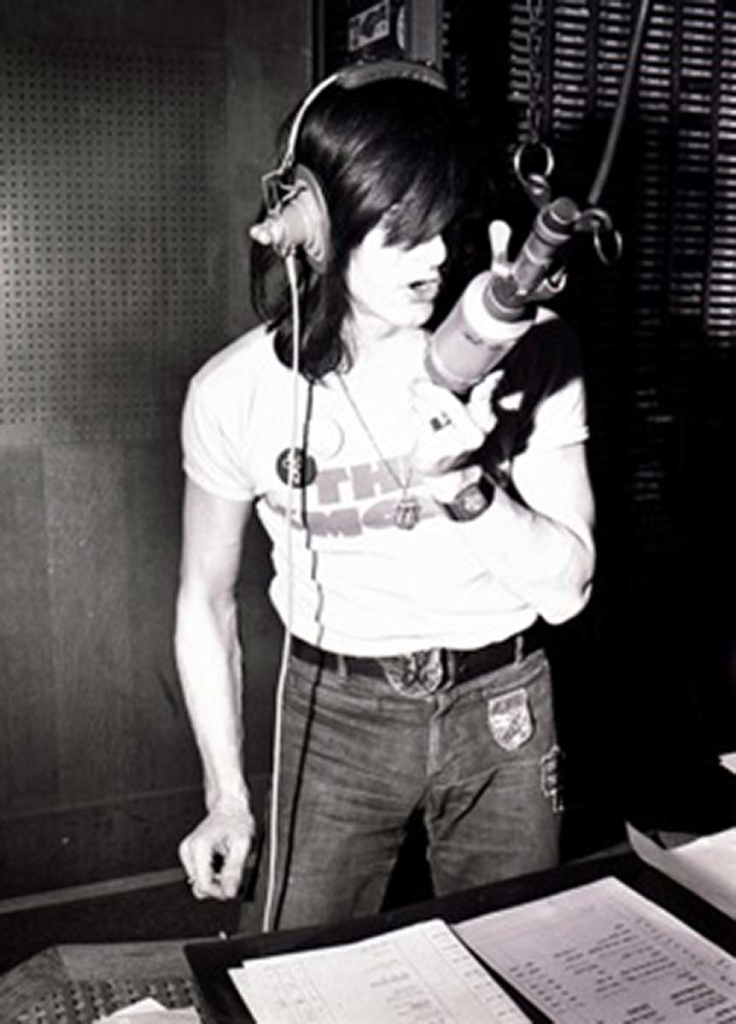
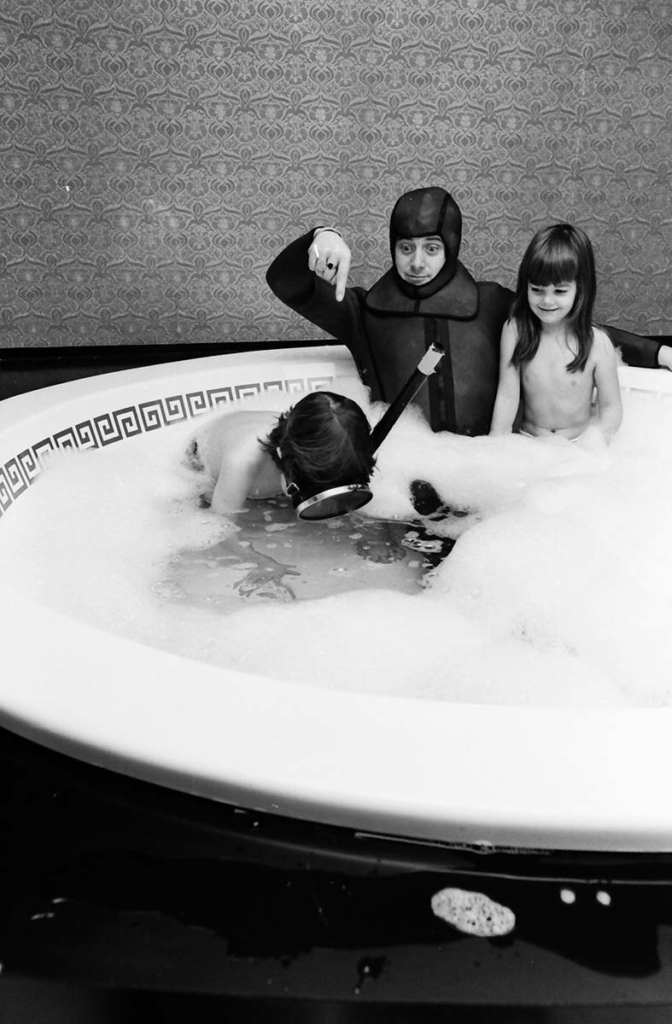
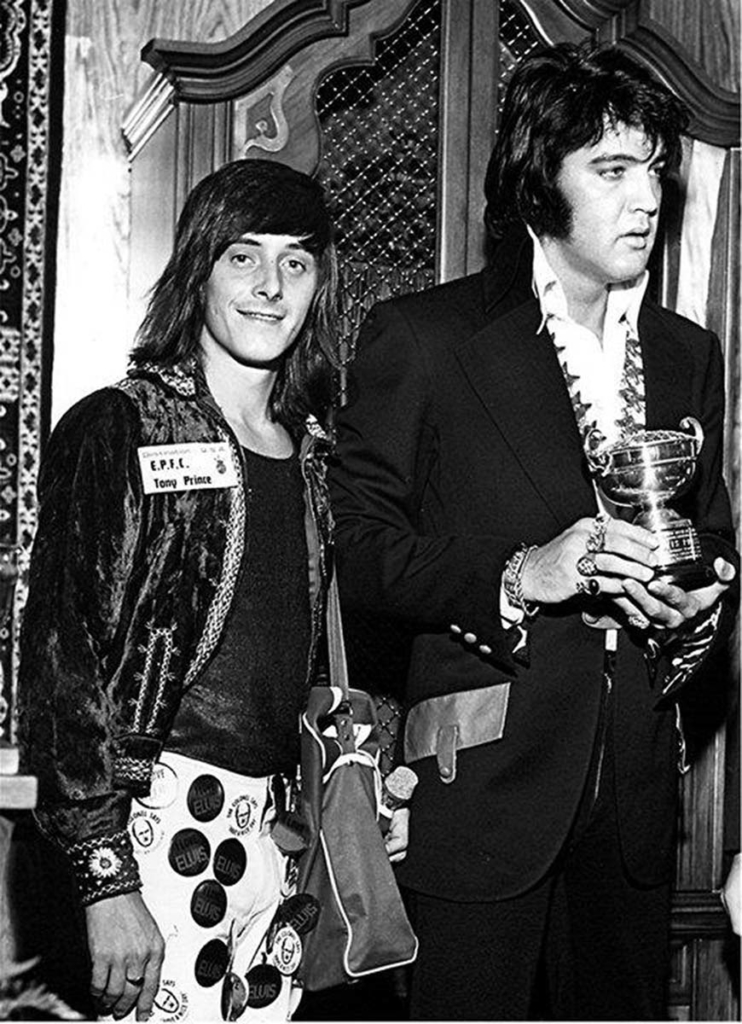
What kind of role played music at home?
I got into rock‘n roll very early on. Going to Butlin‘s every year had an impact on me and after the talent show some guys came to me and asked if I wanted to be a singer in a band. I thought: Are you nuts? But then we had a group called the Jasons. Later I became a singer with a 15-piece-band. We went to Bristol, got on TV and then it all took off.
But things took a different turn and you switched from band to DJ. How did that happen?
I met Tony Blackburn from Radio Caroline when I was a record librarian. I had to listen to lots of records and recommend them for a TV show. I had already read about the pirate radio in the „NME“. So, Tony‘s record wasn‘t great but I wanted to have him on the show. Then he made a connection and I became a pirate DJ at sea for two years. Life was evolving then.
Were pirate radios the logical consequence of the Musicians‘ Union and a phenomenon like Needle Time?
Good that you mention that. The Musicians‘ Union threw me out. They said that by playing records in ballrooms I was putting real bands out of work. I was a scapegoat back then when they sacked me as an example. So I became a fulltime DJ. Needle Time meant the limitation of recorded music a station like the BBC were allowed to play, a maximum of 30 minutes per day.
„The Boat that Rocked“ picked up on that whole story. How realistic was the movie?
It was not very real. It‘s a comedy film and a lot of that stuff never happened. We expected a reflection of what it was like but for us who worked on that boat it was too comedic. It inspired me to make a documentary myself for DMC to tell my side of the story. The passion for music was in the film, but we never had women or parties on that boat and we didn‘t jump from the mast.
You became the Royal Ruler …
Indeed, that was my DJ name the. My colleague Mike Pasternak went under the name of the Emperor Rosko, which i loved. So i thought I should stick with something similar. And as my name was Prince I came up with the Royal Ruler.
You started DJing for Radio Luxembourg then.
They put up a law that made it illegal to run those pirate radios and I didn‘t want to risk my career so I went to Radio Luxembourg as a DJ. In 1976 I became programme director.
The 16th of august 1977 was a special night for you as a DJ.
If you ask people where they were the night Elvis died, lots of them say: I listened to you on Radio Luxembourg. I went into the station in Luxembourg that night and Mark Wesley told me that Elvis had died. I thought it was a sick joke, but it appeared to be true. I had no time to think. I grabbed the records from the library and gave them to the engineer. Went on air at 11 p.m. and played Elvis‘ songs for five hours straight. The most honest broadcast of my life and I don‘t know how I was able to hold back the tears. I phoned my boss and told him I cannot play any commercials. And he told me to get on with it. This was no happy-go-lucky programme. It was the night Elvis died.
Actually you had met Elvis twice. How was he, the King?
During my time on Radio Caroline I became honorary president of the Elvis fanclub. A friendship I maintain to this day. In `72 we took british fans to Las Vegas and that was when Colonel Parker, his manager, allowed me to interview him on microphone. A thing he wouldn‘t do usually. And I even introduced him live on stage. A year later I took my wife with me and together we met him. Thrill, thrill, thrill – never a bigger one in my life.
In the early eighties you created the DMC, the Disco Mix Club…how did that idea come along?
As a programme director it was my job to employ DJs for the radio station and I used to get hundreds of audition tapes. I religiously listened to all of them. This was important. There was one tape that had music on it, just music. It suddenly struck me: This kid is mixing music, he is putting tracks together on the basis of beat synchronisation, a medley of original tracks. Absolutely fantastic. I played it again and again, I just loved it and I knew I had to have this kid named Alan Coulthard on the radio. I told him to do a mix every week, with well-known artists to start with: Shalamar, Kool & the Gang, Michael Jackson. He got better and better. And then I started getting hundreds of letters from club DJs saying: How can we get theses mixes? Then the idea came to me. Next thing I offered the record industry to make mixes to go with their records. One is the original, the second contains the mixes.
In the pre-internet ages how was communication, how did you create a network?
The great thing is that we formed a magazine, the „Mixmag“ back in 1983, as a 16-page, black and white newspaper to reach all sorts of DJs all around the United Kingdom. We became a global phenomenon after that.
How did DMC develop over the 80s?
We had to take a lot of hurdles in terms of copyright, but after that we couldn‘t be stopped. The important thing was that these mixes were in the hand of the DJs and people asked: Where can we buy this? In the history of clubland they had something the audience couldn‘t buy. Then labels like Cream, Renaissance and Ministry started to expand and advertise in Mixmag, which became the bible of dance music.
A family business developed around you.
Back in those days when you wanted to reach hundreds of DJs you had to take the Yellow Pages for all the cities, write down the addresses and telephone numbers to create mailing lists and send out cassettes. My whole family was packing those cassettes. I couldn‘t do that on my own. It all took off then, clubs were cooking. The world was our oyster. Today my son Daniel is Chief Editor for Mixmag, he is a great writer, he does those funny and interesting articles. So I stepped back from that but it still is a family affair.
Then you took dance culture to the traditional Royal Albert Hall.
It was a thing of Ego. We wanted to provide the biggest DJ-event in the world. We were at the Hippodrome and other Ballrooms and they became to small for us. Scratching became hip suddenly, DJs like Cash Money came over who opened everybody‘s eyes again. We built the stage into an SL-100 turntable so the DJs were doing their thing on a huge turntable. After that we went to Wembley Arena, from 5000 to 11000 people and there we had two turntables as a stage. One more thing on the Royal Albert Hall: People didn‘t know who was coming. They expected a great event and that‘s what they got. We had Public Enemy, Run DMC, Janet Jackson, Alexander O`Neal. We had Jimmy Jam and Terry Lewis. And one night I told the audience they would see something to tell their children about and I introduced the one and only James Brown. He must have been the most sampled artist ever and he did so much for us, for DJs and the fans. People still refer to it as the greatest moment in dance music. It was fantastic.
And you stopped the DJ from talking between songs.
That‘s what everybody did back then. Playing a track and then talking. I told them to get rid of that. Build up the mood, get the buggers ready for midnight but stop talking.
Back in the day DJs were viewed critically. When did that change?
An old school rock‘n roller still sees it that way perhaps. A member of Deep Purple said to me – after a few drinks – that DJs are the parasites of the music industry. I said: What are you talking about? Every DJ loves music and you as a musician need allies like that to get your music to the people. With DMC we started to turn all that around, DJs went from playing to mixing to producing. Nowadays DJs can‘t charge hundreds of thousands of Euros without creating their own songs. If you wanna be a mega DJ you have to be writing.
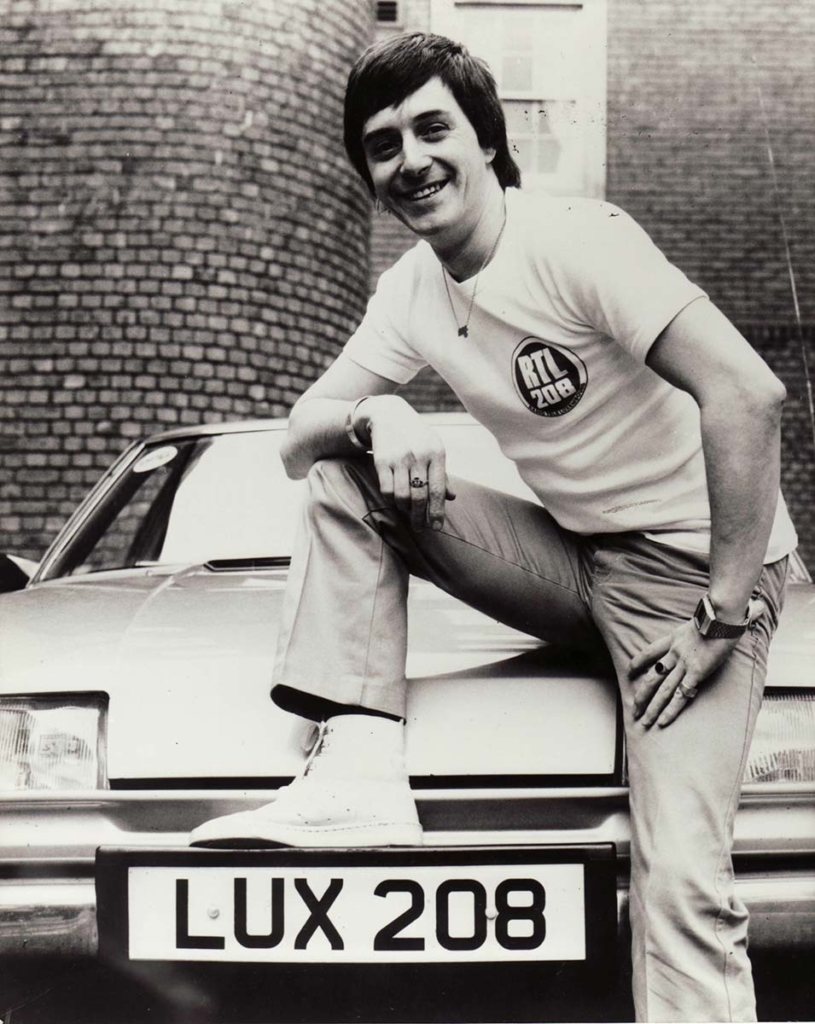
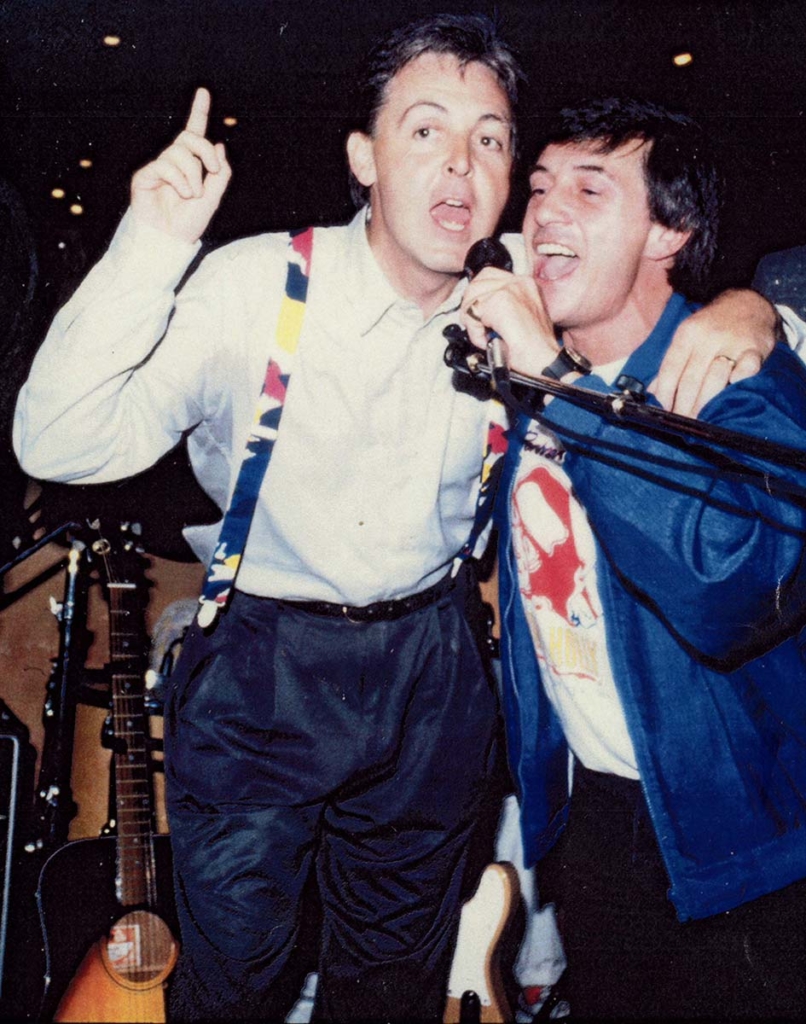
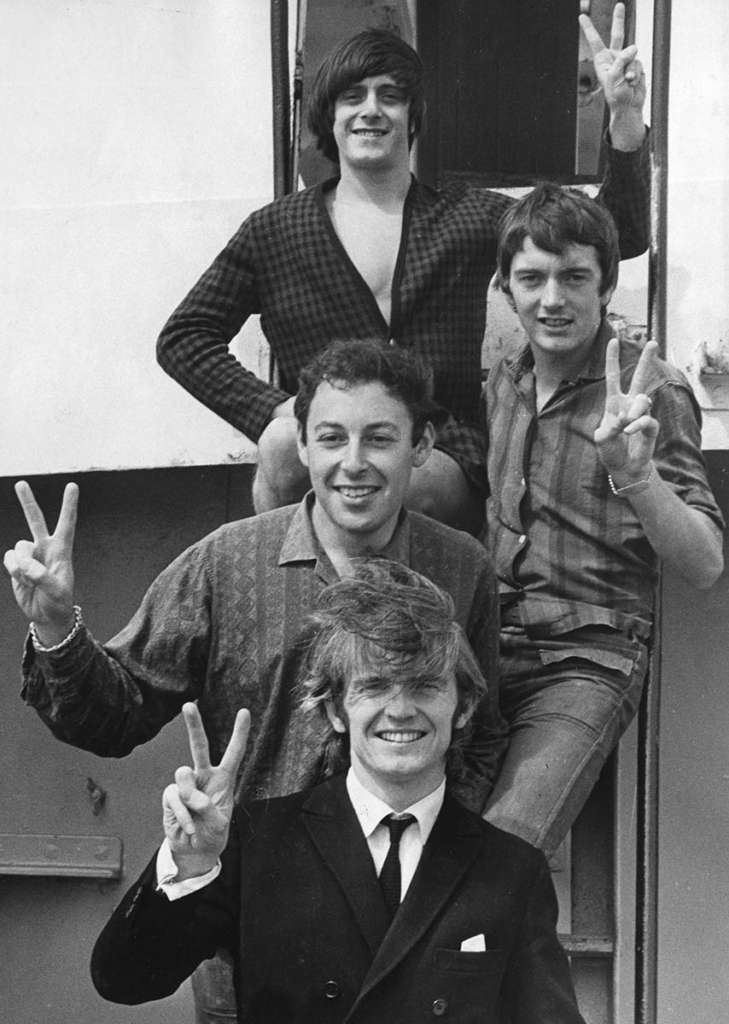
How important was Ibiza for you and the history of dance music and club culture?
I was here with Paul Oakenfold when he had his famous birthday party in the late 80‘s. DMC started the „Nightlife Holidays“ and we took fans to Mallorca and Ibiza. The „London Mafia“-DJs fell in love with the island and made it their homebase.
What‘s so special about the vibe here?
It‘s such a wonderful island. When the Club promoters went in – from Renaissance, Cream and Manumission – to start their nights and put so much energy and creativity in it, that made those events so special. People like Darren Hughes or the guys from Ministry had so much experience from their nights in the UK and they brought it all here. „Mixmag“ wrote about all that and when people went to Ibiza they wanted to go to these nights they read about.The Ibiza story as a whole is a wonderful one and the Balearicans are just wonderful people. I hope the people on one side of the island don‘t find the clubbing thing on the other side too intrusive on the tranquility. If you want both, try the idyllic side of the island, get a taxi to the other side and you‘ve got two great holidays. One to party and one to get rid of your hangover.
Are you visiting the island this season?
I‘m planning to come to visit Daniel. I may come out in June.
Are you a beach kind of guy?
I don‘t have time for that. I used to love swimming but now I‘m too busy with all kinds of things. (laughs)
Of all those legends you met – who left the biggest impression?
You never gonna get past Elvis, are you? He was way ahead of everything, he was original and he looked and moved like a rock‘n roll god. Apart from all that: God kissed my life. It was so great and it is still so much fun. My secret weapon is my wife Christine. We‘re married for 50 years. She nails me to the floor when she needs to.
Epilogue:
A fantastic Reunion is about to become reality this season, organized by Ibiza Style magazine. The Km5 will see two radio legends back as a team: The Emperor Rosko and the Royal Ruler on 9th June. Be there or be square.
